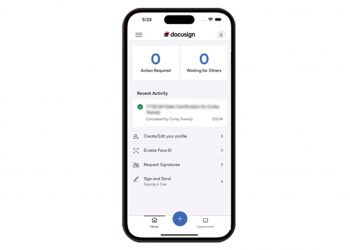By John Voket
RISMEDIA, Nov. 27, 2007-Marylyn Schwartz, president of Teamweavers, recently recalled learning about the stages an agent team goes through as they strive toward a collective goal.
“You have forming, storming, performing, and if need be, adjourning,” she said, during a session on Forming and Leading a Championship Agent Team at RISMedia’s Leadership Conference.
No matter what stage of formation or development a winning team finds itself, their potential for progress nonetheless lays firmly on the shoulders of that team leader.
“If the team leader is doing a good job, what begins to happen is they empower those individuals to become independent of them instead of dependent on them,” Schwartz said.
Facilitator Ralph Roberts, who has co-authored a book on agent teams, Power Teams-The Complete Guide to Building and Managing a Winning Real Estate Agent Team, with RISMedia President and CEO John Featherston, asked the panel how team leaders encourage that level of independence while bringing money to the bottom line.
Domenic Manchisi, Prudential Estate Towne Center Realty, said he keeps a tab on every penny, every lead, and virtually every query coming through the company’s dozens of URLs.
He said it’s about applying new school advances using technology and old school common-sense business structures and systems.
Operating a family team in a small town in Connecticut of about 21,000, Chip Neumann, of Neumann Real Estate, says he watches the bottom line while fully engaging his company in the community. He also remains focused on working with the contacts and referral network he knows is working for him.
“Certainly we watch the bottom line,” Neumann said. “But I make my 10-15 phone calls a day, and write the 10-15 notes. I reach out and touch these people every day and it doesn’t cost anything.”
Brandon Fairbanks, of Montecino & Associates Real Estate, said he is going to be involving his team with day to day costs in relation to the bottom line.
“We constantly get challenged with commissions and what the market is doing,” Fairbanks said. “It’s going to be crucial to show the team where every dollar goes…show them the utility bills.”
The panelists talked candidly about their agent teams including some of the other profit centers they have developed. Fairbanks, for example, had an agent who was very interested in staging, and she is now part of a free offer for basic staging to the company’s real estate clients, with more ambitious add-ons for a fee.
Schwartz talked about the importance of keeping the team leader sharp, while using every opportunity to involve the team in any teaching moments.
“Make it an exchange, it becomes fun,” she said, adding that the education will work both ways.
Closing out the session, the panel returned to the subject of communication, amongst team members and between the team and their consumer counterparts.
Fairbanks holds weekly power meetings to share thoughts, address office issues and to motivate his team members. Each agent schedules a weekly opportunity day where they reply to leads and answer phones.
These days include one-on-one meetings where the agents can discuss concerns not appropriate for exposure to the team.
Manchisi holds Monday meetings, keeps in constant contact with wireless organizers and has each team member shadowing including watching him making his daily round of phone calls.
“It’s probably the best way they can learn because they can hear me dealing with prospects and leads,” Manchisi said.
Schwartz reminded the audience that teams are not networks, so directing team members to network in important.
Neumann’s office is small enough to afford a daily meeting with each team member. His support person also uses IT tools to monitor showings across their network of clients instead of tracking the outcomes one-by-one via repetitive phone calls and e-mails, and makes that information available immediately to the team members.










